Bad news for allergy sufferers: Pollen counts are on the rise
Some areas, like the southeastern U.S. are seeing pollen counts roughly 10% higher than normal. And people are feeling it.
Seasonal allergies are no fun, but did you know that some experts say that what you eat may have an impact?
Also known as "hay fever," symptoms run the gamut from a runny nose to congestion.
Jenna Volpe, a registered dietitian nutritionist (RDN) of WholeisticLiving.com in Austin, Texas, noted that while more research is needed, she’s found there are certain functional foods and herbs that can help provide natural relief without unwanted side effects for many seasonal allergy sufferers.
Ahead, a look at six such foods that may help with seasonal allergies.
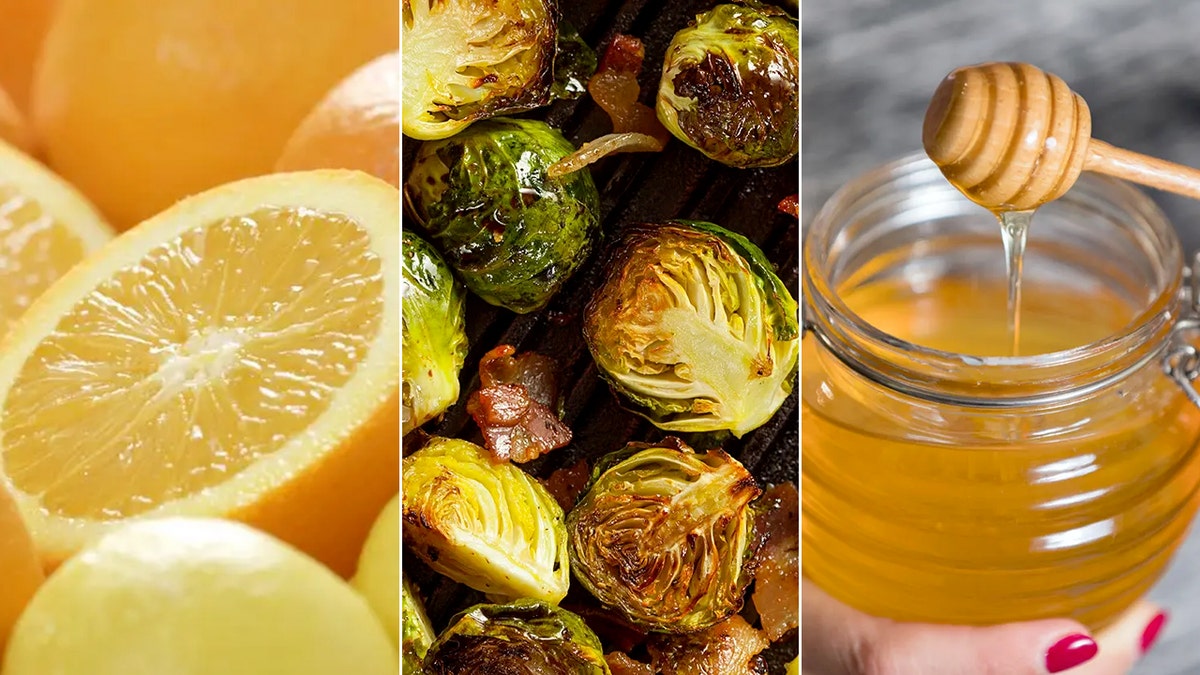
Allergy season is here and these are 7 foods you can take to help fight off the feeling. (Fab!/iStock)
1. Vegetables that have vitamin C, like Brussels sprouts
If you're feeling symptoms from allergies, try snacking on some Brussels sprouts or add to your dinner as a side dish.
"Vitamin C is a water-soluble micronutrient found in many vegetables. It can play several important roles in the body, like fighting allergies, as it helps to regulate the body’s natural inflammatory responses," said Katie E. Golden, MD, medical editor at GoodRx (GoodRX.com) in Charlotte, North Carolina.
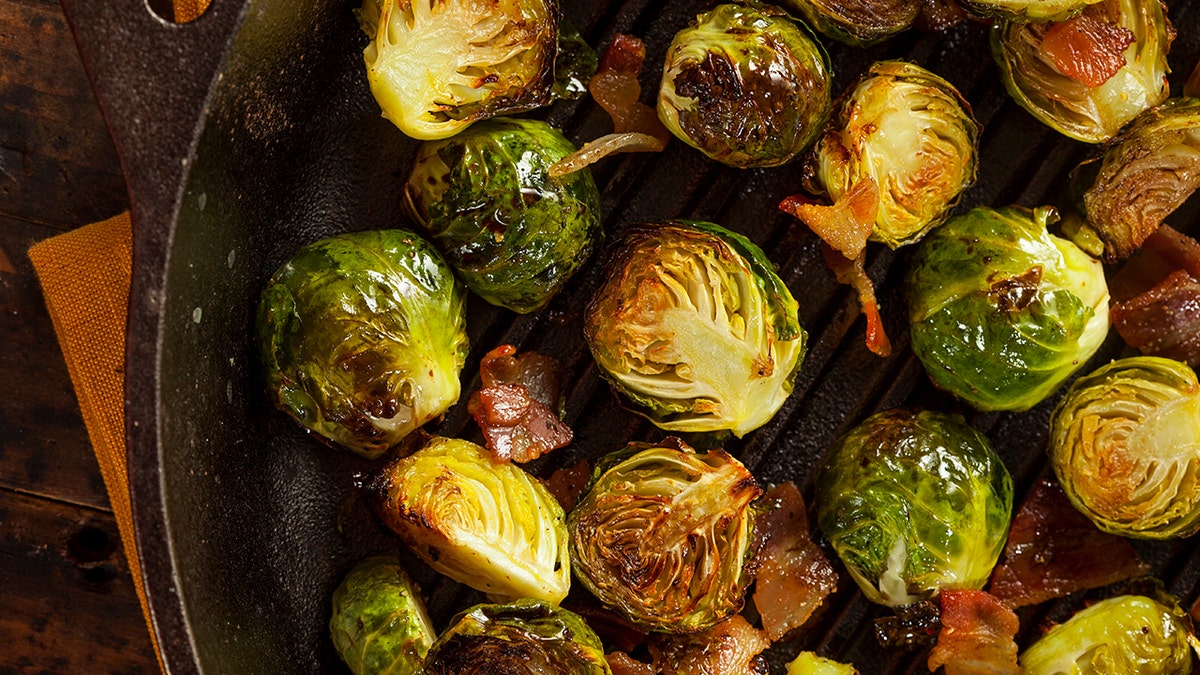
Brussels sprouts could help alleviate symptoms associated with seasonal allergies as they have vitamin C within, according to Katie E. Golden. (iStock)
"Vegetables particularly high in vitamin C include red peppers and cruciferous vegetables — like broccoli, cauliflower, cabbage and Brussels sprouts," she added.
2. Stinging nettle leaves
You can pick up this potent plant at your local health food store, but be sure to consult your doctor before incorporating stinging nettle leaves into your diet.
"Stinging nettle leaves (aka nettle; Latin name: Urtica dioica) as tea, tincture or capsules have been found in clinical studies to provide natural relief for many people with allergic rhinitis," said Volpe.
Stinging #Nettle leaves are tender, mild, and have a green flavor similar to spinach. They can be used just like spinach in egg dishes, soups, or stews and cooking helps to get rid of the stinging quality. pic.twitter.com/MM1MQgWjrF
— SpecialtyProduce App (@SpecProdapp) February 11, 2020
"While the exact mechanisms are unknown, it's been speculated and hypothesized that nettle has a mild anti-histamine effect in the body," she said, adding that from a constitutional standpoint, nettle leaves are naturally drying to the tissues of the body, which is advantageous for people with symptoms of allergic rhinitis such as a runny nose or excessive mucus production in the throat/lungs.
BAD NEWS FOR ALLERGY SUFFERERS: POLLEN COUNTS ARE ON THE RISE
Volpe recommends enjoying dried stinging nettle leaf tea infusions – combining one teaspoon dried loose-leaf nettle per eight ounces of water, and steeped for at least 15-20 minutes.
She also said you can have sautéed nettle leaves with garlic/onion powder, olive oil, and sea salt for a nutritious side dish.
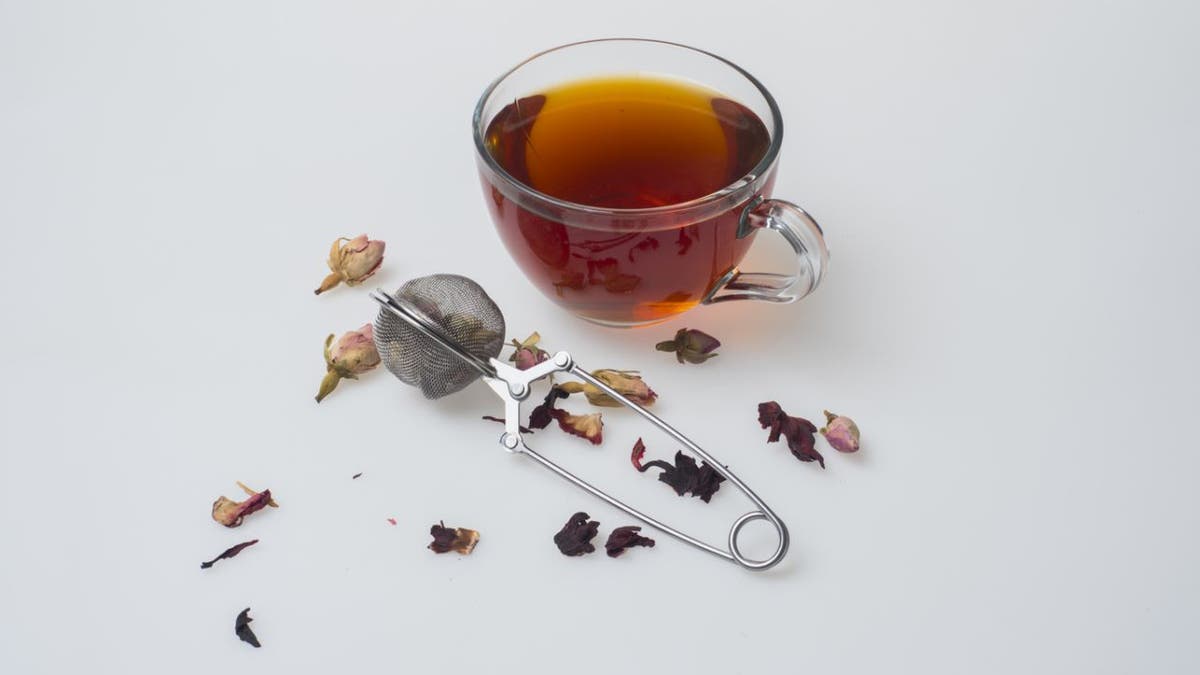
Volpe recommends enjoying dried stinging nettle leaf tea infusions, though be sure to consult your physician before adding herbs to your daily diet. (iStock)
Stinging nettle are common in some forests in the U.S., though the U.S. Department of Agriculture advises that while "young stinging nettle leaves can be eaten if cooked properly," you should never eat its flowers.
Several side effects can occur, such as upset stomach, fluid retention or diarrhea (hives or rash from topical use of stinging nettle), says the Icahn School of Medicine at Mount Sinai in New York.
"Because nettle can alter the menstrual cycle and may contribute to miscarriage, pregnant women should not use nettle," the Mount Sinai blog states.
"The use of herbs is a time-honored approach to strengthening the body and treating disease," the blog continues.
"However, herbs can trigger side effects, and can interact with other herbs, supplements, or medications. For these reasons, you should take herbs with care, under the supervision of a health care provider."
3. Fruits that have vitamin C, like oranges
In addition to oranges, don’t overlook other citrus like clementines or grapefruit (the latter if it doesn’t interact with any medications you may take, advised Golden).
MANY FIRST REPORT PEANUT ALLERGY SYMPTOMS IN ADULTHOOD, STUDY FINDS
"There are a number of different fruits that contain vitamin C, which is known to support the immune system," said Golden.
"Oranges, for example, are a fruit that contains vitamin C and small studies show it may be helpful for allergies."
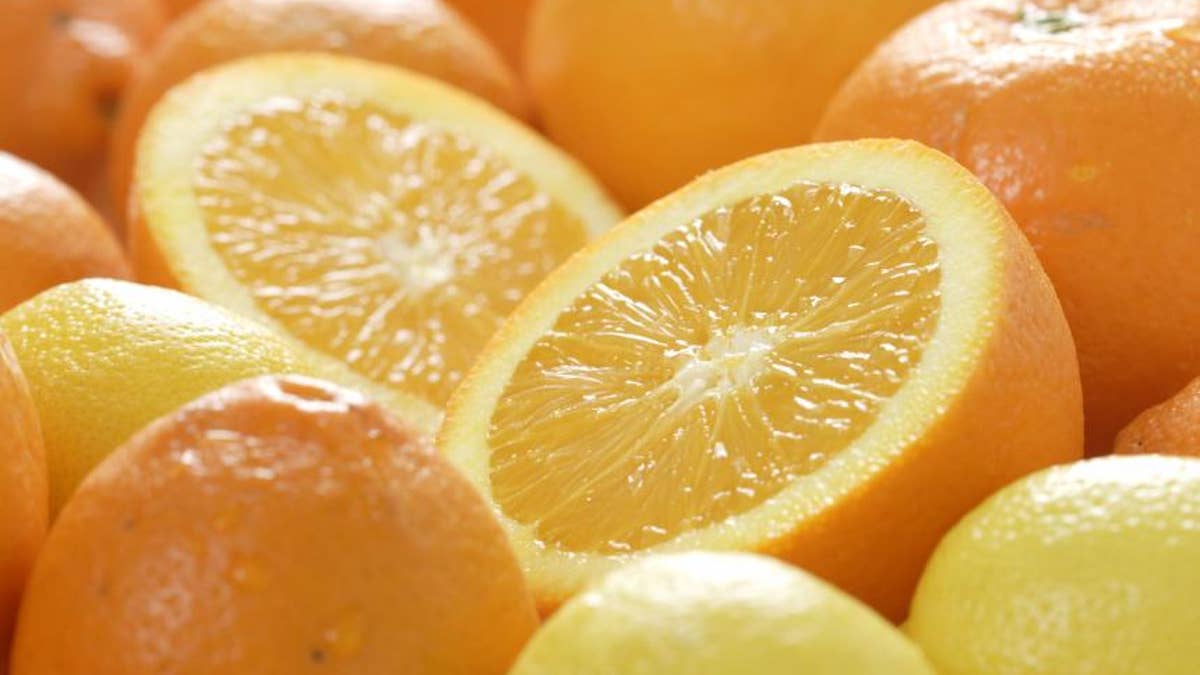
Oranges are a fruit option with high vitamin C content, helping to reduce allergy symptoms. (Fab!)
4. Raw honey
Volpe said she's a fan of raw honey for its purported health benefits, some of which may prove helpful for seasonal allergy symptoms.
"Some studies suggest that consuming local raw honey or raw manuka honey daily in certain quantities can help provide natural allergy relief for those with seasonal allergies," she said.
ALLERGY SUFFERERS HAVE NEARLY 40% LOWER RISK OF COVID-19 INFECTION, STUDY SAYS
"Raw honey contains high levels of propolis, a constituent found to have lots of health-promoting properties including the inhibition of mast cells (the type of immune cells involved in allergic reactions)," Volpe explained.
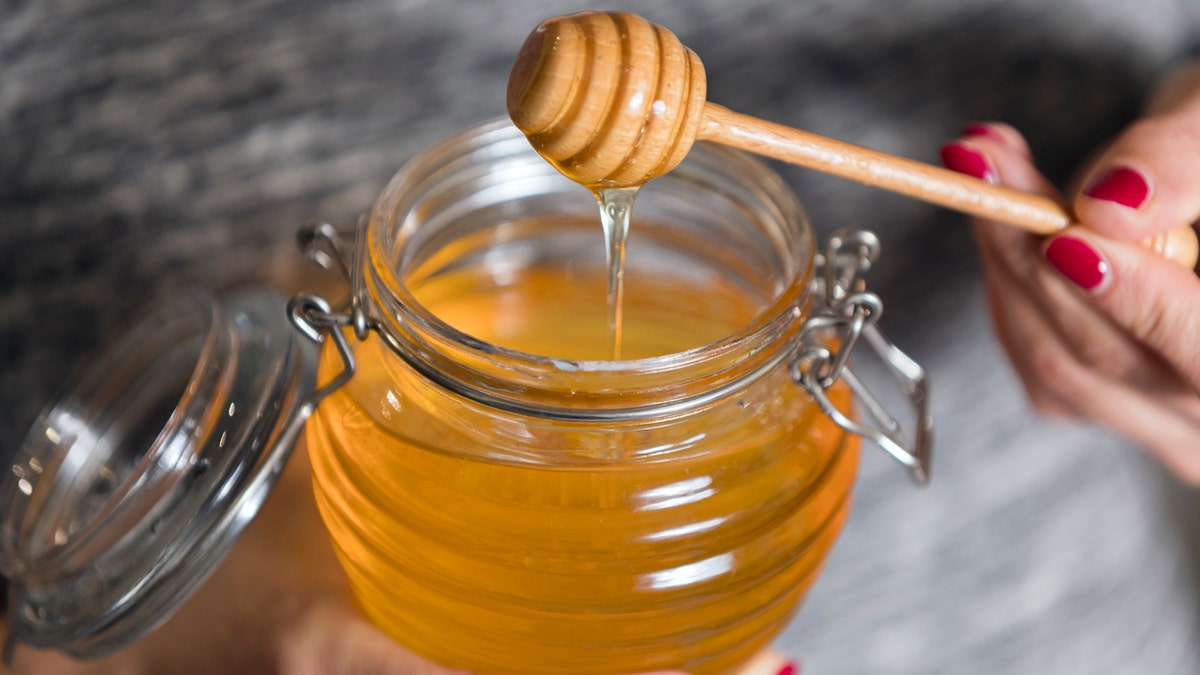
Volpe said raw honey has been shown to help fight off seasonal allergies as it has high levels of propolis, but she admits that more research is needed to confirm. (iStock)
Despite these findings, Volpe stressed that more research is needed to confirm this.
"In my anecdotal observation and experience, I don't think consuming raw honey (unless daily in significant quantities) is as effective as other alternative methods for preventing and managing seasonal allergy symptoms," Volpe said.
THESE ARE THE 8 BEST FRUITS FOR YOUR HEALTH, ACCORDING TO NUTRITIONISTS
Try raw honey on its own or in overnight oats, oatmeal, in smoothies or in yogurt, suggested Volpe.
5. Quercetin-rich fruits and veggies
Quercetin — a type of antioxidant found in many types of fruits and veggies — is well-researched and is often used in functional nutrition and functional medicine to help pacify an overactive histamine response in the immune system, said Volpe.
THE BEST VEGETABLES FOR YOUR HEALTH, ACCORDING TO NUTRITIONISTS
"Quercetin in clinical research has been deemed effective for supporting people with allergic rhinitis (AR) naturally, so it would make sense that eating quercetin-rich foods such as red onions, asparagus, and raw capers regularly would help on some level," she said.
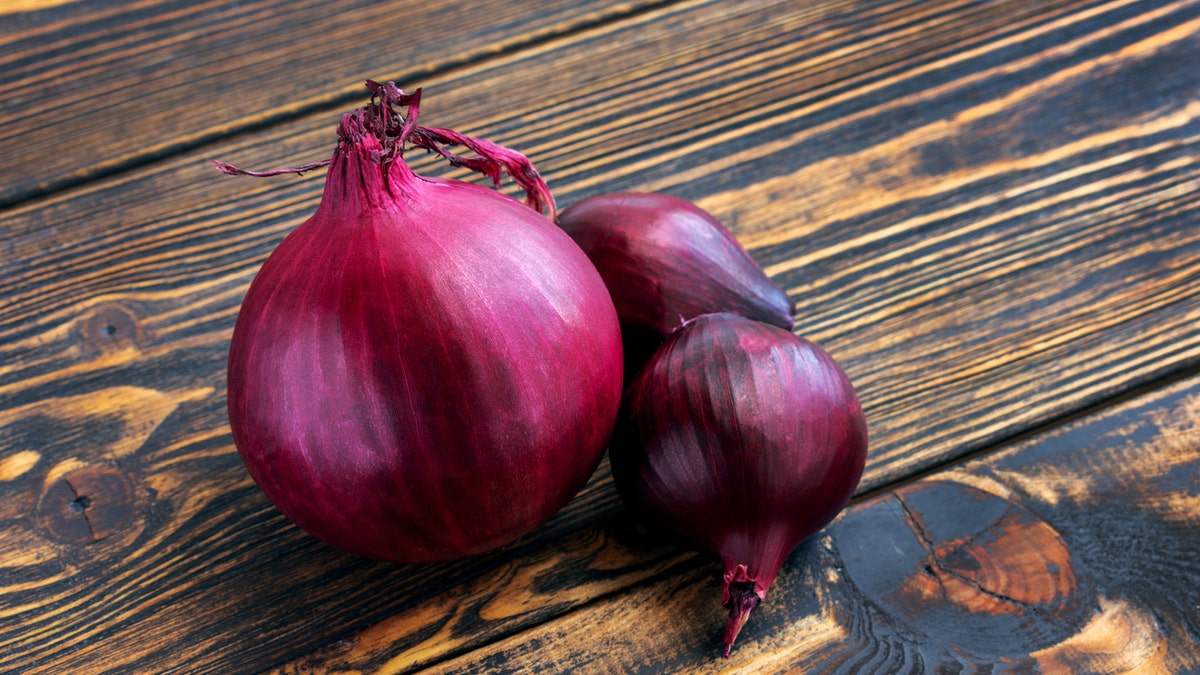
Red onion is rich in quercetin — a type of antioxidant found in many types of fruits and veggies that may help with seasonal allergy symptoms, according to Volpe. (iStock)
Try adding red onions into salads, sandwiches or your favorite salsa recipe, said Volpe.
Curious to go the capers route?
"Adding capers to foods may be contraindicated for some people who need to limit sodium, but could be helpful in moderation for some people with seasonal allergies," said Volpe.
6. Kale
Since it’s such a superfood, consider incorporating quercetin-rich kale into your at-home recipes.
CLICK HERE TO SIGN UP FOR OUR LIFESTYLE NEWSLETTER
While Golden cautioned that there’s no particular food that has been 100% proven to help with allergies, many vegetables are rich in nutrients that are known to have anti-inflammatory properties and so, they may be helpful.
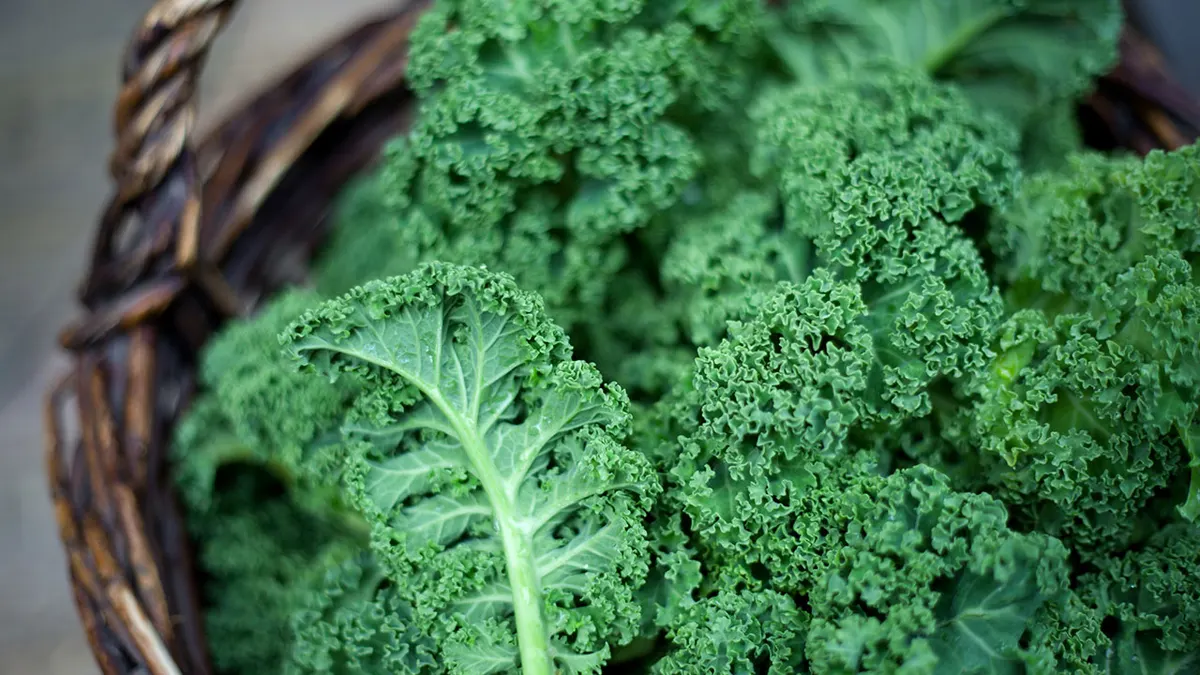
Kale is considered a superfood that's rich in nutrients. (iStock)
"For example, quercetin — a plant pigment that can be found in kale, spinach, broccoli and onions — acts as an antihistamine compound," she explained.
CLICK HERE TO GET THE FOX NEWS APP
Consult with your doctor before changing your diet or adding any new herbs to your routine.










































